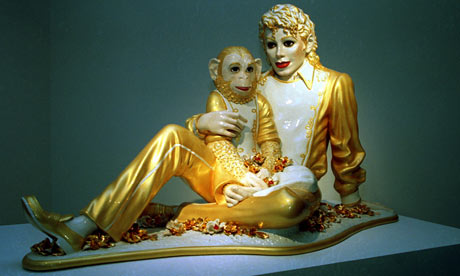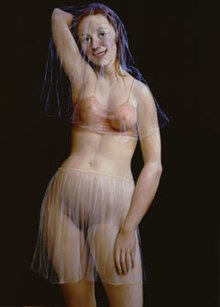 Black velvet paintings, porcelain and plastic figurines is considered kitsch. I realized that the things I like and present for other to view will most likely be kitsch in their viewpoint. For instance, I like Hello Kitty and Tinkerbell. I would probably buy a plastic or porcelain figurine of these two characters and put it on top of my obsolete analog TV, because they are cute.
Black velvet paintings, porcelain and plastic figurines is considered kitsch. I realized that the things I like and present for other to view will most likely be kitsch in their viewpoint. For instance, I like Hello Kitty and Tinkerbell. I would probably buy a plastic or porcelain figurine of these two characters and put it on top of my obsolete analog TV, because they are cute. In the art world, kitsch is equivalent of being evil to the high art society. Its a false example of art because the medium is beautified for the masses to buy with no truth behind as its explained by Hermann Broch. Clement Greenburg gives a further analysis in his essay Avant Garde and Kitsch simply stating, "'Where there is an avant-garde, generally we also find a rear-guard". I would have to agree with Broch that intellectuals defined what was and still is considered high and low art. Kitsch is art, but low art because some of these mediums have artistic formulas like balance, plasticity, figurative representaion, buts its not genuinely original. It's been copied in a cheap manner by others before. It's repeated in the thousands such as Thomas Kinkade works. They are paintings, ornaments, little statues of nature, lighted perfect houses or cottages with perfect sun rays making it appear appealing to the Christian society.
Their are artists that embrace kitsch are Jeff Koons, John Currin, fantasy painters like Borris Vallego.
 |
| 1988 Michael Jackson with his pet monkey Bubbles by Jeff Koons |
 |
| Borris Vallejo |
John Currin, Borris Vallejo and other fantansy painters that display women in a erotic manner I believe is kitsch. John Currin follow the examples of other long before him exaggerating the form of the bust and buttocks, the curvelinear outline and clothing of the erotic woman is also emphasized in oil painting. They often have a narrative theme. It's kitsch because it's not orginal, our society has accepted nakedness and erotic behavior, but people like this so it well be around until our society is diminished.
 |
| The Veil, oil on canvas by John Currin |
No comments:
Post a Comment